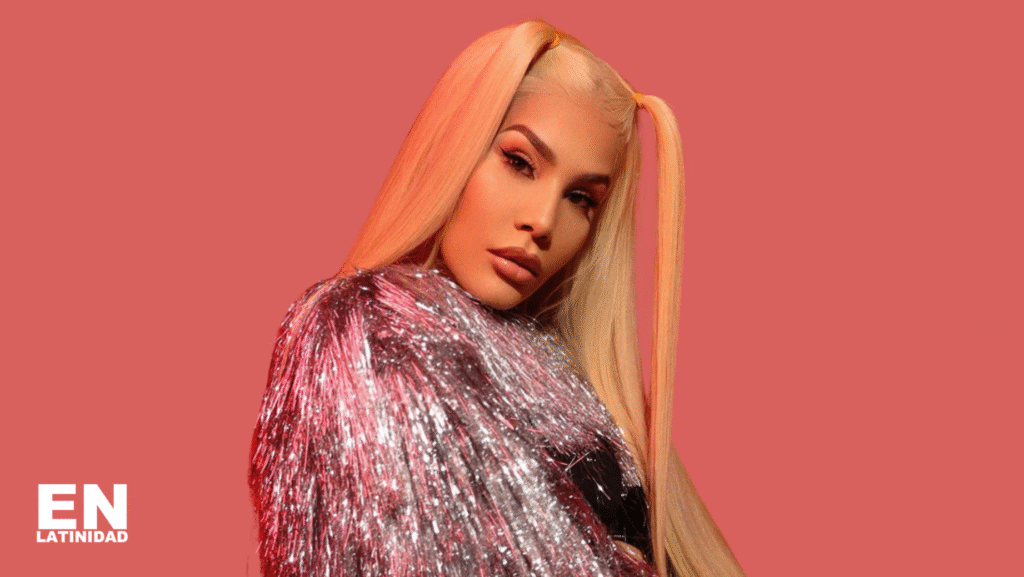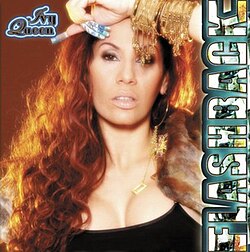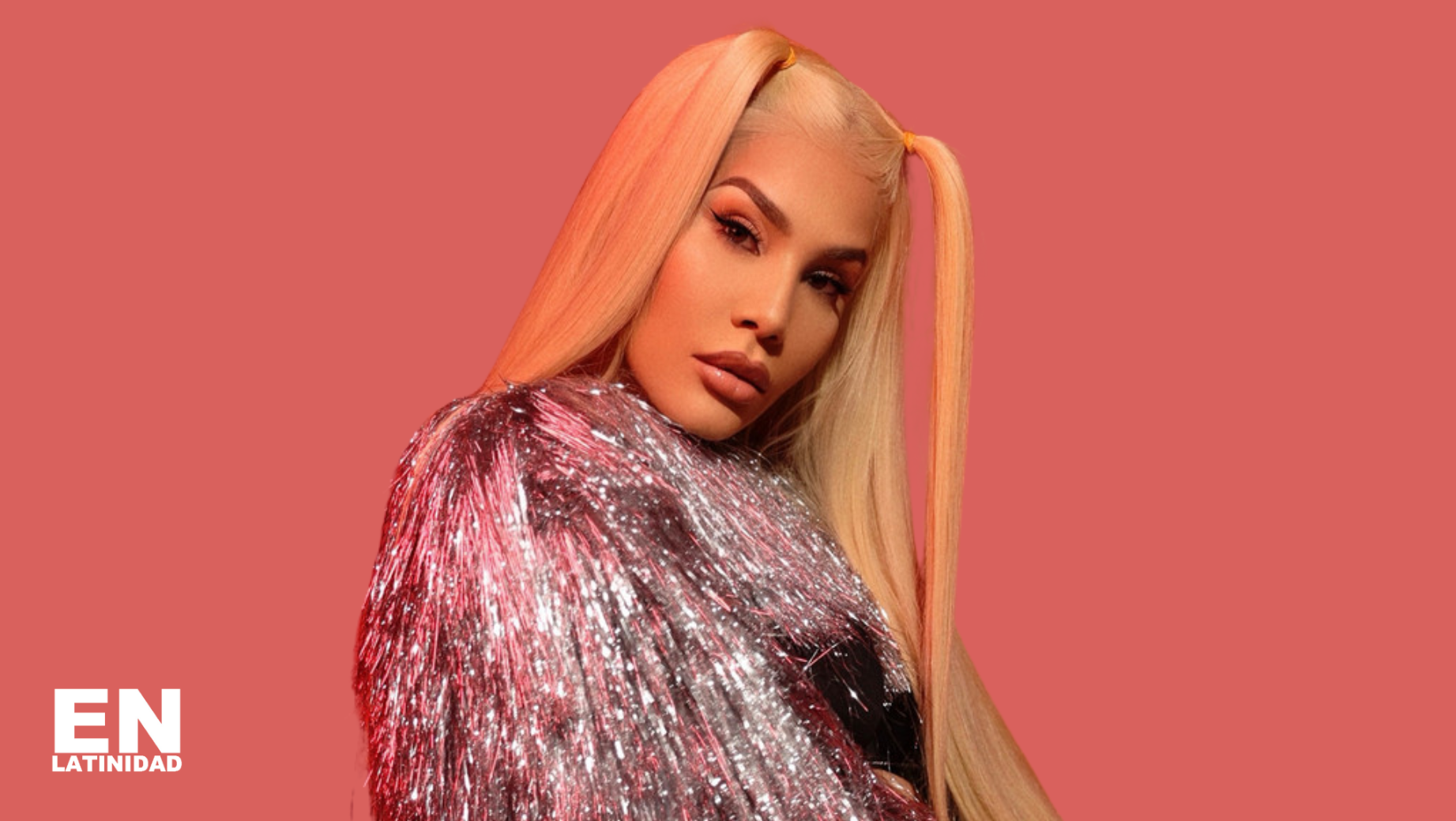Why Ivy Queen, Is The Queen of Reggaeton
Before there was global crossover, before record-breaking streams, and before reggaetón was sanitized for radio, there was Ivy Queen—a fearless, sharp-tongued, unapologetically feminist powerhouse from Añasco, Puerto Rico, who refused to be silenced in a genre dominated by men. Known as “La Caballota,” Ivy Queen didn’t just claim her crown—she built the throne from the ground up.

In the mid-1990s, Ivy Queen—born Martha Ivelisse Pesante Rodríguez—emerged as one of the only women in Puerto Rico’s “Underground” music scene. This was the raw, gritty predecessor of what would later become known as reggaetón. The music was booming from caseríos (public housing complexes) and barrios, under the threat of criminalization by the Puerto Rican government’s “iron fist” policies, which equated hip-hop and underground with delinquency. Ivy Queen wasn’t just up against industry sexism; she was battling a state that criminalized the culture she loved. It was in this context that she joined The Noise, the iconic collective of DJs and MCs who helped define the era. Among the crew—lined with aggressive male energy—Ivy Queen stood out. She rapped with venom, clarity, and intention, demanding space in a genre that wasn’t made for her.
She wasn’t the first woman to rap or sing about life in the Latin American streets. Ivy Queen walked the path carved by early Panamanian femmes like La Atrevida ‘Rude Girl’ and Lady Ann—women who laid the groundwork for what female resistance could sound like in reggae en español. Around her era, she would be joined by other notable femmes like Lisa M, Lorna, who made international noise with “Papi Chulo,” and Glory, whose iconic moans became the backbone of countless reggaetón hits but whose contributions have too often been overshadowed. Ivy Queen, however, had something that transcended novelty or feature credits—she had vision that set a commercial path for women to come.
Her debut album, En Mi Imperio (1997), was a declaration of sovereignty. With lyrics that addressed inequality, domestic violence, and empowerment, she made it clear she was not here to be anyone’s hook girl or background vocalist—she was a lyricist, a thinker, and a storyteller. But it was her 2003 hit “Yo Quiero Bailar” that cemented her as reggaetón royalty. The song is not just a banger—it’s a feminist anthem, a declaration of sexual autonomy where Ivy famously states, “Yo quiero bailar, tú quieres sudar, y pegarte a mí, el cuerpo rozar, pero no te me puedes ir de aquí, porque eso no me obliga a ti.” In an era where reggaetón lyrics often objectified women, Ivy flipped the script. She wasn’t asking for permission. She was laying down the rules.
Over the decades, Ivy Queen released a slew of acclaimed projects: Diva (2003), Flashback (2005), Sentimiento (2007), and Musa (2012), to name a few. Her music evolved, embracing bachata, salsa, and ballads, all while maintaining the spirit of resistance and empowerment. Each project showed a different side of her—heartbroken, defiant, reflective, triumphant. She didn’t chase trends; she set them. Her lyricism could go toe-to-toe with any of her male counterparts, and her vocal presence—part snarl, part sermon—made every word land.

Ivy Queen’s impact also extends far beyond music. As a jabá—a Puerto Rican of light skin but African features—she has spoken out about the discrimination she’s faced both in life and in the industry. Colorism in Latin America is real and persistent, and Ivy has carried those scars with poise and power. She’s also broken boundaries as a mother, openly discussing her journey with IVF and motherhood in the public eye, a subject rarely addressed by mainstream reggaetón artists. In doing so, she further expanded what it meant to be a mujer in el movimiento.
Her legacy is evident in the careers of nearly every femme reggaetón artist who came after her. Karol G, Natti Natasha, Villano Antillano, and many others walk on the path Ivy paved. And while some have achieved greater commercial success, none can claim the same depth of cultural or political impact. Ivy Queen did not emerge in an era of social media campaigns or curated girl power aesthetics. She fought for her voice to be heard in rooms where she wasn’t invited, where no one wanted her to stay, and where she refused to leave. She created a blueprint that said: femmes belong here, and they don’t need permission.
Ivy Queen’s role as a staunch ally to the queer community has been pivotal in a genre where machismo has long dominated both sound and space. While many reggaetón artists have only recently begun to embrace LGBTQ+ fans publicly, Ivy has stood with the community for decades. Her lyrics, presence, and persona have always centered empowerment and bodily autonomy—messages that have deeply resonated with queer audiences who rarely see themselves reflected in Latin urban music. From the moment she declared “Yo Quiero Bailar” on her own terms, Ivy was signaling to all listeners—especially those marginalized by gender and sexuality—that they had a right to joy, autonomy, and liberation on the dance floor.
Her authenticity and consistency have earned her trust and reverence from LGBTQ+ communities across Latin America and the diaspora. Ivy has marched in PRIDE parades, performed at queer-centered events, and remained vocal in her support of queer rights. She’s never treated allyship as a marketing strategy—it’s a part of who she is, and queer fans recognize that. In an industry where many only offer lip service, Ivy Queen has provided community, solidarity, and visibility. Her stage performances often feel like communal celebrations of resistance, beauty, and freedom, particularly for fans who’ve long been othered within reggaetón spaces.
In the face of reggaetón’s historically hypermasculine culture, Ivy Queen’s unwavering support for LGBTQ+ folks is a radical act. She has shown that being an icon doesn’t require exclusion—it requires love, conviction, and integrity. It’s why she’s not just respected, but adored, within queer communities. For many, Ivy isn’t just a reggaetón pioneer—she’s family. Her music, advocacy, and legacy have carved out safer spaces within a genre that often failed to protect or represent queer listeners. And for that, her crown shines even brighter.
In 2021, Ivy Queen once again proved her influence transcends music when she took the mic as the host of the podcast LOUD, a 10-part series by Spotify Studios and Futuro Studios. The podcast—produced by Katelina “Gata” Eccleston, a reggaetón historian and one of the genre’s sharpest cultural critics—traced the political and cultural history of reggaetón, with Ivy narrating the story she helped write. It was a full-circle moment: not just a legend reflecting on her own legacy, but giving historical context to the genre she helped elevate from the shadows to the spotlight.
With more than four decades in the game, Ivy Queen is still going. Still releasing music. Still evolving. Still showing up in leather bodysuits, platinum wigs, and a voice that cuts like a blade. And somehow, she looks better than ever. Her presence is a reminder that reggaetón is not just youth culture—it’s a movement with roots, memory, and multigenerational power. Ivy Queen’s unwavering allyship with the LGBTQ+ community has made her a beloved icon in reggaetón, breaking machismo barriers and creating inclusive spaces within Latin urban music.
The truth is, Ivy Queen didn’t just earn her crown—she forged it in fire, shaped it with sweat, and wore it before anyone dared call her Queen. She is not a token. She is not a feature. She is not a relic of a past era. She is—and will always be—the blueprint.
Long live La Caballota. Long live Ivy Queen.





Leave a Reply
You must be logged in to post a comment.